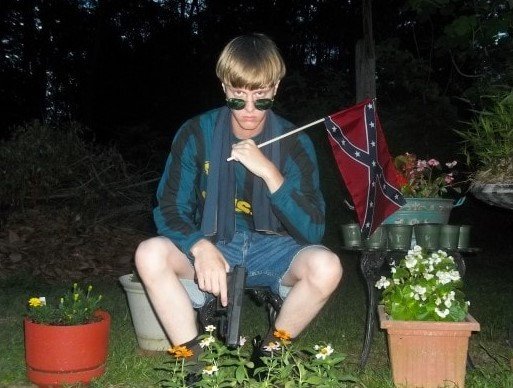The man who killed nine people in a historically black church in South Carolina in 2015 was able to buy the gun used in the attack because of a breakdown in the federal gun background check system.
Despite having previously admitted to drug possession, Dylann Roof was allowed to buy the .45-caliber handgun because of mistakes by F.B.I. agents, a failure by local prosecutors to respond to a bureau request for more information about his case, and a weakness in federal gun laws.
Roof, the still-unrepentant white supremacist who murdered all nine while they attended a Bible study at Emanuel African Methodist Episcopal Church in downtown Charleston, S.C., in June 2015, is currently on death row.
This week, bipartisan legislation to strengthen the federal background check system is headed for a vote in the House.
With the number of mass shootings that have taken place since that South Carolina rampage — including the recent mass shooting in Aurora, Ill., involving a gunman who erroneously passed background checks twice before killing five co-workers — the effort is seemingly overdue.
H.R. 8 and H.R. 1112 would require universal background checks and close the Charleston loophole.
One of the measures is a bipartisan bill, co-sponsored by Reps. Mike Thompson (D-Calif.) and Pete King (R-N.Y.).
But the White House today issued a statement warning that President Trump would veto the proposed legislation if it passes the House and Senate.
Both bills are expected to pass the House along party lines with limited support from Republicans when they vote on it this week.
If the bills pass in the House, they would still need to be sent to the Republican-controlled Senate for approval before reaching Trump.
The White House announced it opposed the bills for violating Second Amendment rights.
“The extensive regulation required by H.R. 8 is incompatible with the Second Amendment’s guarantee of an individual right to keep arms,” the statement reads. “By overly extending the minimum time that a licensed entity is required to wait for background check results, H.R. 1112 would unduly impose burdensome delays on individuals seeking to purchase a firearm.”
“If H.R. 8, or H.R. 1112, are presented to the President, his advisors would recommend he veto the bill,” the statement concludes.
What “horrors” does a universal background check involve?
The one the National Rifle Association hates the most is the notion that private sales, and not just those involving licensed gun dealers, should face the background check.
40 states do not require background checks for private gun transactions, like the one that took place between Roof and his father.
Gun control activists call this the “private sale” loophole.
It’s illegal to give guns to felons or people with felony indictments — but that’s only if you know about their criminal records.
In most states, you don’t have to ask, so private citizens can more or less freely exchange guns.
The NRA supported background check laws in the past, including those signed by former President Reagan, but changed its mind in 2015.
Trump’s announcement comes about a week after the one-year anniversary of the deadly shooting at Marjory Stoneman Douglas High School in Parkland, Florida, which prompted Democratic lawmakers to make gun control a top priority.
At the time of the Parkland shooting, Trump had announced he would support background checks, and tweeted that he would “be strongly pushing Comprehensive Background Checks.”
